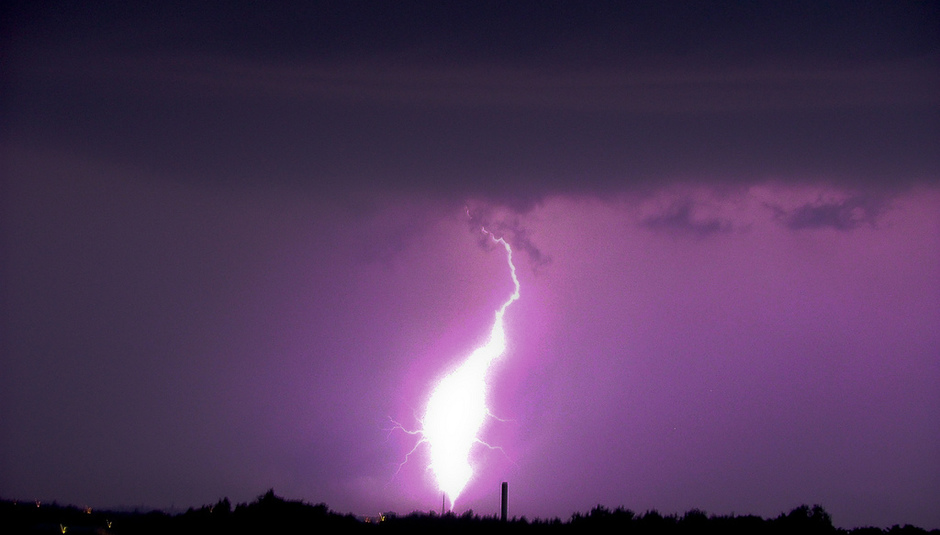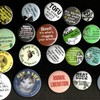As well as featuring the usual round-up of notable releases, this second edition of the monthly column on UK bass music explores the ethereal world of LHF, a seven-strong London collective that evoke the heady spirit of the past while simultaneously looking forward to a hazy future.
Woven into the very fabric of London dance music, from hardcore through jungle and garage to grime and dubstep, is the spectre of pirate radio. More than just acting as airing grounds for music that might not get played elsewhere, analogue transmissions are a means of binding local scenes together. The internet might make it possible to hear a stream of music from anywhere, instantly, but it fosters a greater sense of geographical separation, of individual peaks of activity rather than a centralised critical mass. For the development of the UK’s own dance variants these radio waves were catalysts, autonomous spaces that spanned lines people might experience in the physical world. With divides broken down, creative strands from every community could worm their way into new hybrid forms.
LHF epitomise that spirit of communal exploration. The collective – made up of Amen Ra, Double Helix, Low Density Matter, No Fixed Abode, Solar Man, Escobar and Octaviour – all produce their music individually, each with a different slant on the UK bass lineage that inspired them. But it finds its way to listeners shorn of boundaries. Typically broadcast in their Sub FM show United Vibes, or as part of their neverending series of mixes, tracks from all seven members dissolve into a sensuous whole. The result is a wholescale blurring of reality: LHF mixes are conduits to London’s astral plane, viewing the same streets, alleyways and buildings through a dreamlike lens. Whether by intention or not, they instantly transport the listener back to a time before the net was able to send a stream of information directly to every home.
“We wanted to create our own world or system,” group spokesman Amen Ra explains, when asked about the collective’s initial formation. “We wanted to have something for us, I guess, it's a very pirate ethic. Pirates were created as a kind of empowerment, a way of having something of your own, flying your own flag. We all want to feel like we can just be ourselves in a space where there is no judgment or expectation.” And the way they present their music, as a united front, is a crucial factor in maintaining that. “[LHF is] a blank canvas for elements to fuse, for them to get to know themselves better. It is something greater than the sum of its parts. All these sounds together create this bigger vision, bigger than the individual sounds themselves.”
That sum total is a dizzying whirl of complementary and contradictory sounds. In tempo and structure it’s most closely allied to dubstep, but their use of film samples and slowly evolving melodic loops betrays a debt to the questing spirit of jazz, as well as Wu Tang’s creeping cinematic dread. “We were all sparked strongly by that RZA type rawness and undilutedness,” Amen Ra agrees. The closing section of the ritualistic ‘Steelz’ traps an elliptical labyrinth of fading voices – and an overt reference, “You know cash moves everything around us” - between descending melody lines that coil around one another like charmed serpents.
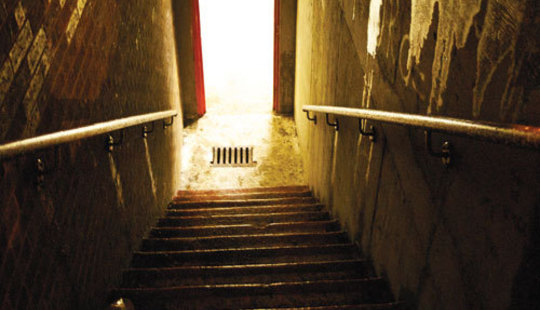
But there’s a glimmer of electricity here that’s far tougher to pinpoint; Double Helix’s remix of Ca.tter’s ‘4th Motion’ shreds tabla and panpipe over ocean deep bursts of sub-bass, as if soundtracking a genre of film yet to be invented. “In general it's just shared experiences, maybe just chilling, watching flicks or listening to tunes,” he continues. “We can just feel it when we've seen or heard something important that's blatantly going to influence our music, because it’s changed our perspective. When we part at the end of those link-ups we all know that we experienced something there that is going to change us and our music. The interesting thing is how that moment gets interpreted and represented by each of us.”
Despite having existed for quite some time in various different permutations, LHF’s sound was only brought to wider attention by their recent signing to Martin ‘Blackdown’ Clark’s Keysound label, and the release of their first 12”, EP1: Enter In Silence, in June. “I guess it was fitting,” Clark admits, when asked about his connection to their music. “I first heard about LHF through idle talk, rumour and whispers.” After previous attempts to contact him had failed, he arrived home from holiday to find a pile of CDs waiting. “Jetlagged, I tried to listen to them but in my sleep deprived, phased state they really began to fuck with my head. In retrospect I think LHF would have been very happy about this.”
Now that they’re signed to the label, with a second EP due in October and an album to follow, LHF slot perfectly into its carefully honed aesthetic. “I think they’re a pretty perfect fit for one possible interpretation of Keysound, as much as that’s even possible,” Clark explains, “as I’m trying to shuttle between or past multiple different London outliers, to fill in the volume and find the spaces beyond.” Amen Ra shares the same view. “Keysound as a label seem to celebrate the history of the UK whilst looking forward as well, which is exactly what we're about. It's a mutual respect that made it happen really.”
That uneasy tension between the nuum’s past and its future lends LHF’s music a curious sense of stasis, as though it could never exist at a time other than now, but also fills it with a feeling of timelessness. It’s a contradiction that fuels the incandescent energy of their Keepers Of The Light mixes, every track woven into an unbroken stream of consciousness. “By taking the form out - names, faces, etc - we are left with the essence,” Amen Ra explains. “That allows people to truly explore the music without their own mind getting in the way, with its pre-conceived judgments and associations. It's about allowing people to listen freely.”
“I love how Blackdown called us a ‘transmission’ that he's trying to tune into, that’s hitting the nail on the head. We just provide a constant stream without putting too much of a spin on it or making bare noise about it, so that people can then just tune in, by themselves, for themselves.” When asked whether that’s a conscious effort, in order to link LHF’s music to the legacy of the pirate stations that preceded them, his answer is more straightforward. “We know no other way of doing music. We were raised with that kind of attitude. I was on pirates before I was producing, Double Helix was going to illegal dances, so it was that renegade attitude that we always connected to this UK sound - that is the backbone of it.”
“You can be who you want on the outside now, regardless of what you really are inside,” he says of the changes heralded by the information era, and LHF’s mystikal, opaque aura. “The mystery and intrigue thing is a natural consequence when you're not out there pushing yourself in peoples’ faces and doing press shots and all that. Everyone wants to be seen or heard, so when you don’t really want that - when you want to be left alone to do your experiments - people get interested.”
Clark’s opinion is much the same. “People bemoan the internet era as over-exposing all music, demystifying it, but an infinitely long tail of noise is a very safe place for signal to hide, like a pulsar in the cosmic microwave background. Nothing’s further away than the limit infinity tends to.” So while LHF appear mysterious and an unknown quantity, he explains, that interpretation could be just as much to do with the “sacred and celestial” feel of their music. And with over a thousand tracks in the group archive, and more being produced all the time, it feels as though we’ve merely latched onto a tiny portion of something far deeper. It’s hard not to suspect that the group will continue to explore the psychic spaces between producer and listener regardless of whether people continue to take interest.
“In LHF we’ve all got this strong idea that there's more out there and that there's questions that don't get asked, and I'm sure that must come across in the music and give it that spiritual feel you talk about,” Amen Ra reflects. “There are certain mystics that talk about vibrations as the essence of all life. People are at different levels, and plants are different to rocks because of their vibratory rate. So to reach higher places we can change our vibratory rate - maybe music can be a way for directly accessing this principle. Or maybe it's in our minds, I don’t know. Either way, when I produce I want to feel like I’m being taken to a different vibration, where my thoughts and emotions have a different kind of quality to them, you know?”
LHF’s EP2 is out on Keysound Recordings in October
And the pick of this month’s releases…
Hyetal & Peverelist – The Hum/rrr [Punch Drunk]
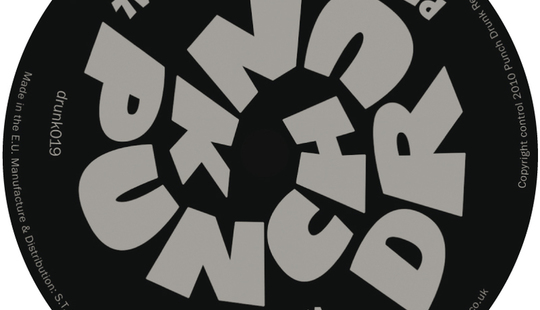 At the risk of sounding hyperbolic, the nineteenth release on Bristol’s comically consistent Punch Drunk label is the finest slab of wax they’ve put out to date. It’s not simply that the fusion of Peverelist’s distinctive junglist percussion and Hyetal’s tetrachromatic synthwork makes for a perfect marriage of form and function – though it does. It’s that the resulting tracks end up far greater than the sum of their parts. ‘The Hum’ is already something of an anthem, its stargazing melody paving the way for a bass drop that sounds as though the ground’s being suddenly sucked from beneath your feet. And the gradually ascending two-step of ‘rrr’ takes a full three minutes to reach flight, leaving shimmering vapour trails in its wake. That this 12” is the best thing either have yet released ought to be more than enough encouragement to get hold of it, stat.
At the risk of sounding hyperbolic, the nineteenth release on Bristol’s comically consistent Punch Drunk label is the finest slab of wax they’ve put out to date. It’s not simply that the fusion of Peverelist’s distinctive junglist percussion and Hyetal’s tetrachromatic synthwork makes for a perfect marriage of form and function – though it does. It’s that the resulting tracks end up far greater than the sum of their parts. ‘The Hum’ is already something of an anthem, its stargazing melody paving the way for a bass drop that sounds as though the ground’s being suddenly sucked from beneath your feet. And the gradually ascending two-step of ‘rrr’ takes a full three minutes to reach flight, leaving shimmering vapour trails in its wake. That this 12” is the best thing either have yet released ought to be more than enough encouragement to get hold of it, stat.
The Hizatron – Hizatron EP [Wigflex]
Some madcap bass-heavy techno here; the Hizatron’s ‘Von Glooperstein’ was one of last year’s most peculiar tracks, but that didn’t stop it from being insanely addictive. On his new 12” for Wigflex he’s gone one better, both in terms of track titles and sound. ‘Executive Ball Scratcher’ is the pinnacle here, a deeply bizarre bit of swung techno that suddenly falls apart under a cascade of music box melodies halfway through. It’s both gorgeous and really quite sleazy, and necessitates relistens at every available opportunity.
James Blake – Klavierwerke EP [R&S]
Anyone expecting a retread of James Blake’s pop-leaning CMYK EP is likely to end up surprised by the music on this follow-up, as it contains his most understated productions to date. The Blake hallmarks are still there of course – ultra-minimal two-step beats on the title track, deliciously subdued and subverted vocal performances – but they’re lent to the service of a far more contemplative whole. In places, especially the hazy voice-and-piano pop of ‘Tell Her Safe’, he sounds more au fait with the lo-fi leanings of Olde English Spelling Bee’s James Ferraro and Forest Swords, albeit buoyed by the usual cushions of sub. But by the time ‘I Only Know What I Do Now’ lilts its way through his most beautiful five minutes of music so far, it becomes abundantly clear, as ever, that Blake’s music continues to be truly and confoundingly original. Lovely stuff.
V.I.V.E.K – Feel It EP [Deep Medi]
Silkie – Bass Junkie/Eighties Baby [Deep Medi]
Benny Ill vs. J. King - Kosmic 78/Lithium Solar [Deep Medi]
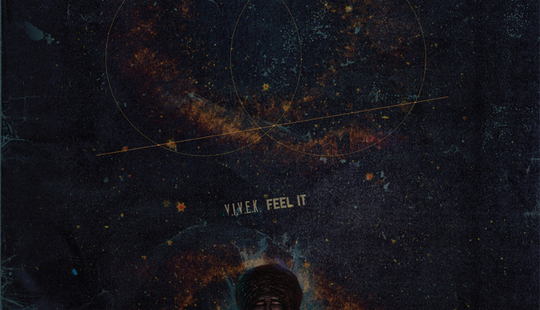 Only a few weeks ago I was bemoaning a lack of relatively ‘purist’, meditational dubstep, but as usual Mala’s DEEP MEDi label is on the case. Following the gorgeous slow motion house of Quest’s ‘Smooth Skin’, these three new releases each take a slightly different slant on the sound. V.I.V.E.K’s is the best of the three. His style works on tension and release: a very gradual build-up and sudden unleashing of energy – or, as on the almost unbearably tense ‘Grandfather Clock’, immediate dissipation. Silkie’s tracks are far more immediate, exploding with tensile strands of low end and, on the intensely physical ‘Bass Junkie’, stabs of booze-addled synth. Benny Ill and J. King are both members of dubstep forefathers Horsepower Productions, and their 12” is marked out by their usual sense of swing, shot through with propulsive conga rolls and abrasive, fibrous bass.
Only a few weeks ago I was bemoaning a lack of relatively ‘purist’, meditational dubstep, but as usual Mala’s DEEP MEDi label is on the case. Following the gorgeous slow motion house of Quest’s ‘Smooth Skin’, these three new releases each take a slightly different slant on the sound. V.I.V.E.K’s is the best of the three. His style works on tension and release: a very gradual build-up and sudden unleashing of energy – or, as on the almost unbearably tense ‘Grandfather Clock’, immediate dissipation. Silkie’s tracks are far more immediate, exploding with tensile strands of low end and, on the intensely physical ‘Bass Junkie’, stabs of booze-addled synth. Benny Ill and J. King are both members of dubstep forefathers Horsepower Productions, and their 12” is marked out by their usual sense of swing, shot through with propulsive conga rolls and abrasive, fibrous bass.
DVA & Fatima – Just Vybe/Step 2 Funk [Hyperdub]
LV & Okmalumkoolkat – Boomslang/Zharp [Hyperdub]
2010 has seen Hyperdub continue to establish themselves as a totally unique entity, Kode9’s label increasingly aligning itself with the sort of grime-infused house beats that defined the earliest UK funky 12”s. It’s certainly rare to hear anything on there that could be described as ‘dubstep’ anymore, and this month’s duo of releases further cements that assertion.
Since a trip to South Africa - and an excellent house mix, available here - dubwise steppers LV have shifted their trajectory towards a fusion of kwaito and London bass – and their latest 12”, featuring the vocals of Durban MC Okmalumkoolkat, is one of the most compulsive I’ve heard all year. ‘Boomslang’ has been rattling round the chambers of my brain since the foolishly brilliant video emerged last month, and its bleep melody sets it up as the spiritual heir to Mujava’s anthemic ‘Township Funk’. ‘Zharp’ on the flip is even better, a serpentine, spring-loaded thing that shivers and slithers before suddenly dying. Meanwhile, Scratcha DVA continues to assert his place as the most innovative producer working in funky, the Fatima-featuring ‘Just Vybe’ recasting his ultra-minimal ‘Natty’ as a slow and soulful dancefloor grind.
Breach – Fatherless [PTN]
Alongside the Deep Teknologi collective, Breach is pushing forward a new strain of tough, militaristic UK house. It’s far too rigid to be Funky, but too free-flowing and organic to be anything but nuum music. ‘Fatherless’ trades in the airy, smooth skip of most funky for a bludgeoning with brutish clubs of sub-bass and a maddeningly catchy vocal snippet. Oh, and a circular flute line that hangs around over the whole thing. And that’s pretty much it, though it hardly does justice to the track’s ability to utterly demolish any dancefloor it’s unleashed on. On the flip, ‘Man Up’ offers a more flexible, Africanised and perhaps ultimately more fulfilling vision of Breach.
Back next month with more...

